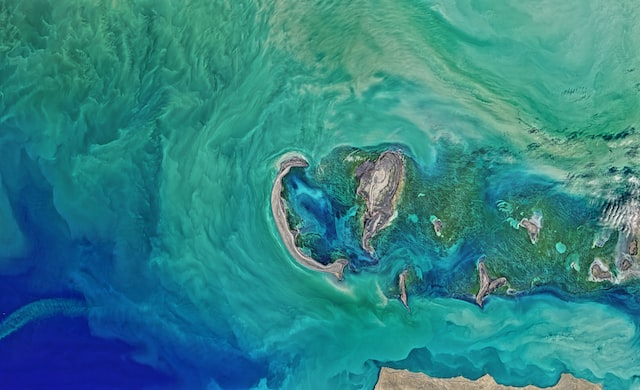Documents
This section features public documents and files uploaded by the stakeholders and custodians of the Caspian Sea environment.
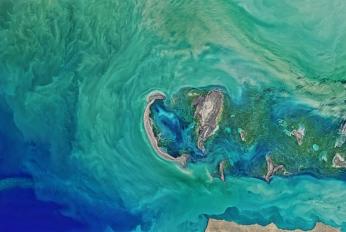 Overview of the Caspian Sea Day events in Russia for 2008-2019Sun, 30/03/2025 - 23:14Activities to mark the “Caspian Sea Day” in Russia were carried out annually from 2008 to 2019, and 10 celebrations took place. In Russia, celebration of the Caspian Sea Day was launched in 2008 with holding the Caspian Ecological Forum (August 11, 2008, Astrakhan). It aimed to discuss national mechanisms for the Tehran Co
Overview of the Caspian Sea Day events in Russia for 2008-2019Sun, 30/03/2025 - 23:14Activities to mark the “Caspian Sea Day” in Russia were carried out annually from 2008 to 2019, and 10 celebrations took place. In Russia, celebration of the Caspian Sea Day was launched in 2008 with holding the Caspian Ecological Forum (August 11, 2008, Astrakhan). It aimed to discuss national mechanisms for the Tehran Co
- Description
Activities to mark the “Caspian Sea Day” in Russia were carried out annually from 2008 to 2019, and 10 celebrations took place.
In Russia, celebration of the Caspian Sea Day was launched in 2008 with holding the Caspian Ecological Forum (August 11, 2008, Astrakhan). It aimed to discuss national mechanisms for the Tehran Convention implementation in the context of ensuring ecological safety and socio-economic development of the Caspian region of the Russian Federation.
The first event under the “Caspian Sea Day” celebration took place in Astrakhan, on August 12, 2008.
Of 10 events within the framework of the “Caspian Sea Day” fest, six were organized to discuss thematic areas of the Tehran Convention's activities (in the format of meetings, round tables): three - at the national level and three - at the regional one. Of these, five events took place in Astrakhan and one event was held in Makhachkala.
The materials in English language are available in the second part of the attached document.
- Attached documents
- Metadata
- Year
- 2020
 Caspian Sea Day 2017 in Russia - ReportSun, 30/03/2025 - 22:01The 2030 Agenda for Sustainable Development, adopted by the UN General Assembly in September 2015 (Resolution 70/1), “Transforming Our World: the 2030 Agenda for Sustainable Development” defines the directions of the sustainable development for particular regions and states, including activities aimed at achieving a balanced
Caspian Sea Day 2017 in Russia - ReportSun, 30/03/2025 - 22:01The 2030 Agenda for Sustainable Development, adopted by the UN General Assembly in September 2015 (Resolution 70/1), “Transforming Our World: the 2030 Agenda for Sustainable Development” defines the directions of the sustainable development for particular regions and states, including activities aimed at achieving a balanced
- Description
The 2030 Agenda for Sustainable Development, adopted by the UN General Assembly in September 2015 (Resolution 70/1), “Transforming Our World: the 2030 Agenda for Sustainable Development” defines the directions of the sustainable development for particular regions and states, including activities aimed at achieving a balanced and sustainable economy.
It contains seventeen sustainable development goals and one hundred sixty-nine targets, many of which are important for the activities under conventions and regional sea action plans. Governments are responsible for the implementation of commitments to achieve these goals and targets, while the regional sea conventions are the basis for promotion of the corresponding regional activities. The regional sea conventions reinforce the application of the ecosystem approach and form multilateral partnership for achieving the sustainable development goals.
In this regard, the event, which takes place in Astrakhan, 10-11 August 2017, under the Year of Ecology in the Russian Federation, is timed to the celebrations of the “Caspian Sea Day” under the Tehran Convention, might be considered as one of the most significant events in the calendar of the international environmental cooperation within the Caspian Sea region.
The event, organized by the Administration of the Astrakhan oblast, Ministry of Natural Resources and Environment of the Russian Federation, PJSC “LUKOIL”, and Interim Tehran Convention Secretariat, traditionally brings together representatives of the Caspian littoral countries, executive authorities of different levels, experts, as well as business sector and academic community with a view of the professional discussion of the implementation of the provisions of the Tehran Convention in the context of sustainable development.
- Attached documents
- Metadata
- Year
- 2017
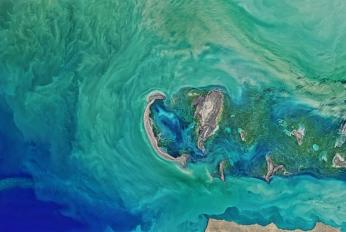 Draft Caspian Regional Action Plan on Marine LitterMon, 20/02/2023 - 12:33Marine litter, including plastic and microplastic, is a global concern affecting all the oceans and seas of the world. It poses environmental, economic, health and aesthetic problems that are rooted in poor solid waste management practices, lack of infrastructure, indiscriminate human activities and behaviours and an inadequ
Draft Caspian Regional Action Plan on Marine LitterMon, 20/02/2023 - 12:33Marine litter, including plastic and microplastic, is a global concern affecting all the oceans and seas of the world. It poses environmental, economic, health and aesthetic problems that are rooted in poor solid waste management practices, lack of infrastructure, indiscriminate human activities and behaviours and an inadequ
- Description
Marine litter, including plastic and microplastic, is a global concern affecting all the oceans and seas of the world. It poses environmental, economic, health and aesthetic problems that are rooted in poor solid waste management practices, lack of infrastructure, indiscriminate human activities and behaviours and an inadequate understanding on the part of the public of the potential consequences of their actions. Development of the Caspian Marine Litter Action Plan is embodied in the Moscow Protocol against pollution from land-based sources.
The preparation of the draft Caspian Regional Marine Litter Action Plan (CRMLAP) was undertaken by the national experts from the Caspian Sea littoral states and an international expert. For that purpose, five National Experts were contracted to provide their national inputs and contributions for the development of the Caspian Marine Litter Action Plan where the International Expert fully facilitates the development of the Caspian Marine Litter Action Plan.
- Attached documents
- Metadata
- Year
- 2020
 National Report of the Republic of Kazakhstan on the Implementation of the Tehran ConventionMon, 23/07/2018 - 14:06Review of Kazakhstan's activities in fulfillment of obligations under the Tehran Convention
National Report of the Republic of Kazakhstan on the Implementation of the Tehran ConventionMon, 23/07/2018 - 14:06Review of Kazakhstan's activities in fulfillment of obligations under the Tehran Convention- Description
Review of Kazakhstan's activities in fulfillment of obligations under the Tehran Convention
- Attached documents
- Metadata
- Year
- 2017
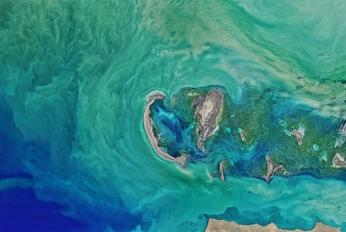 Article - Long-term and seasonal Caspian Sea level change from satellite gravity and altimeter measurementsMon, 16/07/2018 - 15:43The article examines recent Caspian Sea level change by using both satellite radar altimetry and satellite gravity data. The altimetry record for 2002–2015 shows a declining level at a rate that is approximately 20 times greater than the rate of global sea level rise. Seasonal fluctuations are also much larger than in the wo
Article - Long-term and seasonal Caspian Sea level change from satellite gravity and altimeter measurementsMon, 16/07/2018 - 15:43The article examines recent Caspian Sea level change by using both satellite radar altimetry and satellite gravity data. The altimetry record for 2002–2015 shows a declining level at a rate that is approximately 20 times greater than the rate of global sea level rise. Seasonal fluctuations are also much larger than in the wo
- Description
The article examines recent Caspian Sea level change by using both satellite radar altimetry and satellite gravity data. The altimetry record for 2002–2015 shows a declining level at a rate that is approximately 20 times greater than the rate of global sea level rise. Seasonal fluctuations are also much larger than in the world oceans. With a clearly defined geographic region and dominant signal magnitude, variations in the sea level and associated mass changes provide an excellent way to compare various approaches for processing satellite gravity data.
- Attached documents
- Metadata
- Year
- 2017
 Demographic Indicators of AzerbaijanTue, 12/06/2018 - 12:27Baku 2017
Demographic Indicators of AzerbaijanTue, 12/06/2018 - 12:27Baku 2017- Description
Baku 2017
- Attached documents
- Metadata
- Year
- 2017
Document
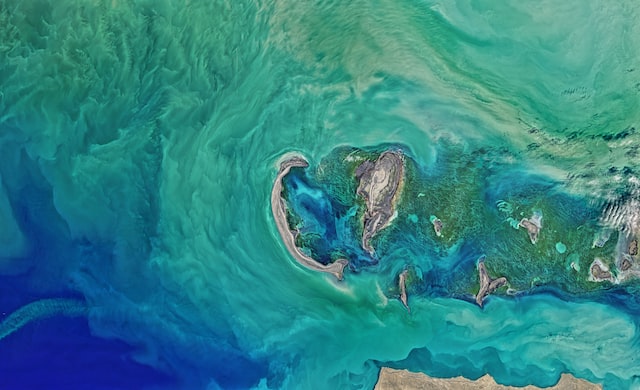
Overview of the Caspian Sea Day events in Russia for 2008-2019
Document

Caspian Sea Day 2017 in Russia - Report
Document
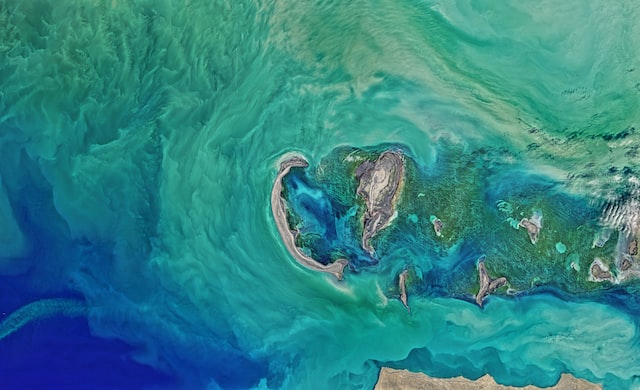
Draft Caspian Regional Action Plan on Marine Litter
Document
National Report of the Republic of Kazakhstan on the Implementation of the Tehran Convention
Document
